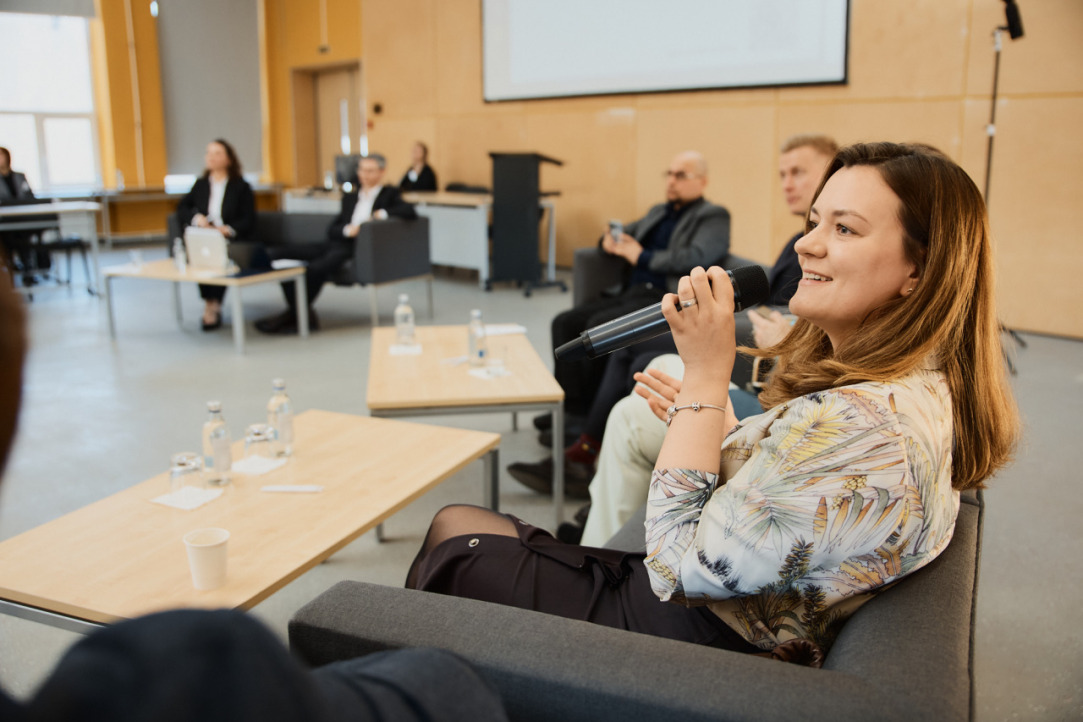‘Eastern Perspective’: HSE University–St Petersburg Prepares Russian Businesses for Iranian Market
Over the past three years, goods turnover between Russia and Iran has reached four billion dollars, and experts estimate the potential for cooperation at 10 billion dollars. For Russian companies that strive to expand the geography of their exports, Iran is becoming one of the most appealing markets.

HSE University–St Petersburg held a round table featuring leading Russian and Iranian experts, as well as representatives of the REC Export School and the Institute of Continuing Professional Education at HSE University–St Petersburg. The event brought together business representatives interested in entering the Iranian market and establishing business relations.
'For eleven years, HSE University–St Petersburg has had an active institute of business education. In recent years, more than 20,000 entrepreneurs and leaders have graduated from it. Today, the institute has taken the liberty to develop the Iranian direction as we strive to adapt our educational portfolio quickly to business demands. That is why in May we are launching a programme which will be a practical guide on entering the Iranian market,' highlighted Ksenia Karadja, Deputy Director of the Institute of Continuing Professional Education at HSE University–St Petersburg.
The main catalyst for the development of bilateral economic relations was the agreement on the free trade zone between the EAEU and Iran, which will come into effect in May 2025. It will help to reduce average duties on Russian goods up to a record 4.5%. Moreover, the transportation corridor to the Persian Gulf and the Indian Ocean is actively developing—recently, the countries launched a railway service between Moscow and the Iranian city of Astara.
'For Russian companies, significant opportunities are emerging both for goods export and direct investments, for instance, in one of six free-trade zones in Iran. I hope that our mutual trade will develop beyond the base material sector,' said Evgeniy Dorofeev, head of the EFC consulting agency and expert of the REC Export School.
Experts from HSE University–St Petersburg highlighted the key features of running a business in Iran that Russian entrepreneurs have to consider. Despite the fact that 75% of Iranian enterprises are state-owned, 80% of export and import are carried out via the private sector. The most promising areas are pharmaceuticals, textiles, food products with high added value (freeze-dried fruit and berries), cosmetics, educational services, and vehicle components.
'The Iranian market gives access to more than 200 million consumers if neighbouring countries are taken into account. However, success in this market requires an understanding of its cultural aspects and the specifics of business cooperation,' highlighted Ebrahim Mello, supervisor of the programme 'Eastern Perspective of Business Development: Iran', chairman of the Russian Soyuzlegprom business council, and renowned expert in Iranian studies.
Evgeniy Dorofeev, expert at the REC Export School, held a workshop for participants of the meeting which covered the unique features of entering the Iranian market. According to him, the key factors of success are understanding cultural specifics, patience, and readiness to invest time in establishing long-term relations. Building partnerships can take up to three years.
'Iran is a new direction for our company, as we have previously worked mostly with neighbouring countries. Our sphere is food products, in particular, freeze-dried fruit and berries. Judging by what I have heard, these suit the demand of the Iranian market. This information is essential and very useful. I was especially impressed by the cultural specifics of running a business in Iran, where business relations are built on friendly ties in many ways,' says Olga Danilchik, event participant.
At the end of the meeting, HSE University–St Petersburg and the REC Export School presented their educational programmes aimed at supporting Russian businesses in their work with Iran. In May, the course 'Eastern Perspective of Business Development: Iran' will start. It will cover all the necessary topics in detail, from cross-cultural nuances to logistics, payments, and e-commerce. One feature of the programme is the search for at least three potential partners for each company participant and the organisation of a business mission to Iran. The REC Export School holds specialised educational events, including workshops about how Russian companies can enter the Iranian market. At the moment, the 'Doing Business in Russia' programme is also being developed for Iranian businesspeople interested in the Russian market.
'2025 is becoming a year of cooperation between HSE University and the REC Export School. This will allow us to enhance the practical component of our work and train specialists who can develop business between the two countries,' sums up Ksenia Karadja, Deputy Director of the Institute of Continuing Professional Education at HSE University–St Petersburg.

